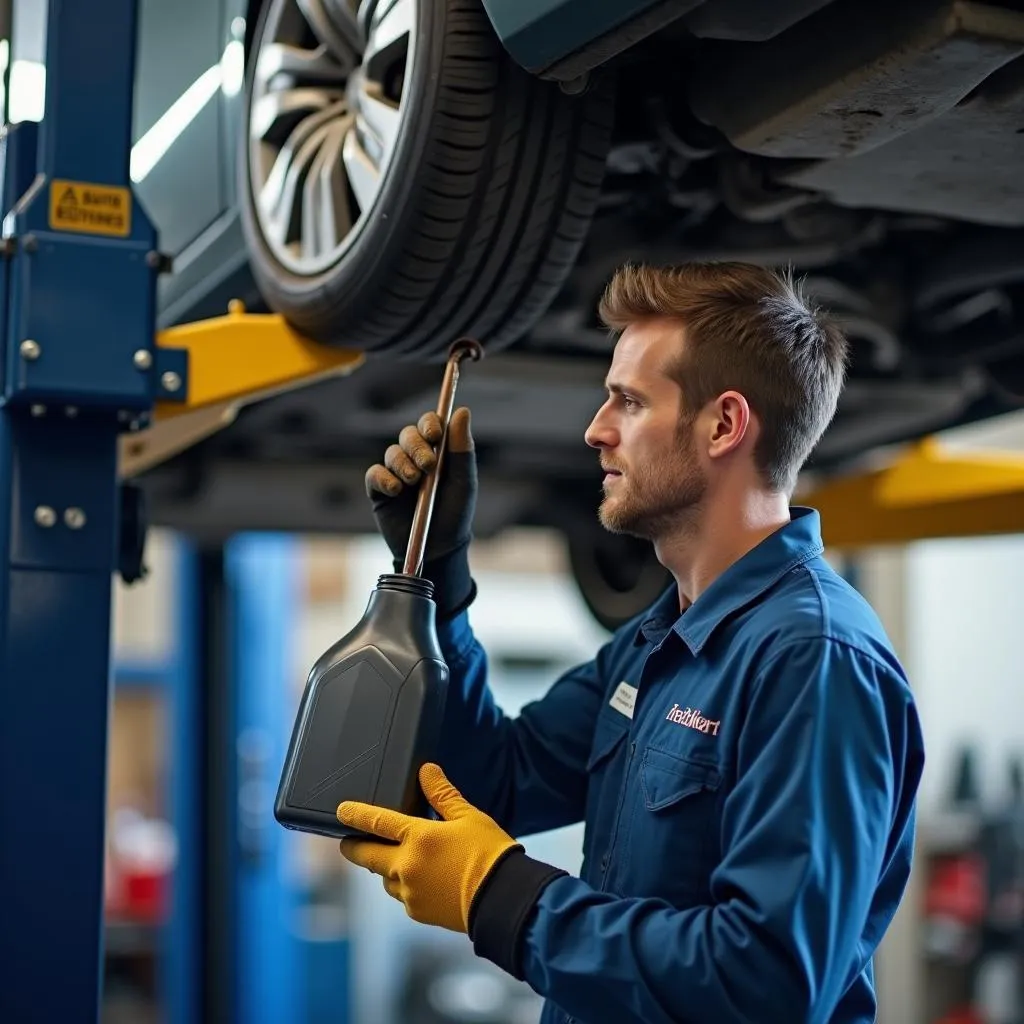When it comes to your vehicle, “Can Auto Service” is likely a question that crosses your mind frequently. Auto service encompasses a wide range of maintenance, repair, and diagnostic services that ensure your car runs smoothly, safely, and efficiently.
Whether you’re experiencing a specific problem or simply need routine maintenance, understanding the scope of auto services can help you make informed decisions about your car’s well-being. From oil changes to engine overhauls, auto service is essential throughout the life of your vehicle.
Understanding the Importance of Regular Auto Service
Regular auto service is not just about fixing what’s broken; it’s about preventing problems before they even arise. Think of it as a health checkup for your car. Just like our bodies need regular checkups to stay healthy, cars need regular maintenance to perform at their best.
Routine auto service typically includes:
- Oil and filter changes: Lubricates the engine and removes contaminants.
- Tire rotations and pressure checks: Ensures even tire wear and optimal fuel efficiency.
- Brake inspections and service: Maintains safe stopping distances and prevents costly repairs.
- Fluid top-offs: Keeps essential fluids at the right levels for optimal performance.
- Scheduled maintenance according to your car’s manufacturer: Ensures all components are functioning correctly and addresses potential issues early on.
 Car Getting Oil Change
Car Getting Oil Change
Neglecting these routine services can lead to more serious and expensive problems down the road. Just like ignoring a persistent cough can lead to a bigger health issue, ignoring a minor car problem can escalate into a major (and costly) repair.
Common Auto Service Needs and Solutions
Beyond routine maintenance, there are various other situations where you’ll need auto service:
1. Warning Lights on Your Dashboard
These lights are your car’s way of telling you something needs attention. Ignoring them can lead to further damage and safety hazards.
- Check Engine Light: Could indicate anything from a loose gas cap to a serious engine problem.
- Oil Pressure Light: Warns of low oil pressure, which can severely damage your engine.
- Battery Light: Signals a problem with the battery or charging system.
- Brake Warning Light: Indicates a problem with your brakes, potentially putting you and others at risk.
2. Unusual Noises or Vibrations
Any new or unusual noises or vibrations coming from your car should be investigated by a professional. These could be signs of:
- Worn brake pads: Typically cause a squealing or grinding sound when braking.
- Exhaust system leaks: Often produce a loud roaring noise.
- Worn wheel bearings: May cause a humming or rumbling sound that gets louder with speed.
 Mechanic Inspecting Car Engine
Mechanic Inspecting Car Engine
3. Performance Issues
If your car is experiencing reduced fuel efficiency, sluggish acceleration, or difficulty starting, it’s time for an auto service checkup. These issues could be due to:
- Clogged air filters: Restrict airflow to the engine, reducing performance.
- Spark plug problems: Can cause misfires and reduced engine power.
- Fuel system issues: May result in poor fuel economy and engine hesitation.
Choosing the Right Auto Service Provider
Finding a trustworthy and reliable auto service provider is crucial. Here are some factors to consider:
- Certifications and experience: Look for ASE-certified technicians and a shop with a proven track record.
- Customer reviews and ratings: Check online reviews and ratings to gauge customer satisfaction.
- Transparency and communication: Choose a shop that clearly explains the work needed and provides detailed estimates.
- Warranty and guarantees: Ensure the shop stands behind its work with warranties or guarantees.
Can Auto Service Damages Cars?
While it might seem counterintuitive, there’s always a slight risk of minor damage during auto service. However, choosing a reputable and experienced service provider significantly minimizes this risk.
Conclusion: Prioritizing Auto Service for Optimal Performance and Safety
Regular auto service is an investment in your car’s longevity, safety, and performance. By addressing issues promptly and staying on top of routine maintenance, you can enjoy a smoother, safer, and more reliable driving experience. Remember, when it comes to your car, “can auto service” should be less about “if” and more about “when.”
FAQs about Auto Service
How often should I get my oil changed?
It’s best to follow the manufacturer’s recommended oil change intervals, typically every 3,000 miles or 3 months for conventional oil and every 5,000-7,500 miles or 6-12 months for synthetic oil.
How do I know if my brakes need to be replaced?
Signs of worn brake pads include squealing or grinding noises when braking, a pulsating brake pedal, and a longer stopping distance.
What should I do if my check engine light comes on?
Get your car diagnosed by a qualified mechanic as soon as possible to determine the cause and prevent further damage.
Can I do my own auto service?
While some basic maintenance tasks can be done at home, it’s generally recommended to leave more complex repairs and diagnostics to professionals.
How can I find a reputable auto service provider in my area?
Ask for recommendations from friends and family, check online reviews and ratings, and look for certifications and experience.
Do you have more questions? Feel free to browse our other articles on AutoServiceEu for detailed insights and expert advice. You can also contact us via WhatsApp at +1(641)206-8880 or email us at [email protected]. Our dedicated customer support team is available 24/7 to assist you.


